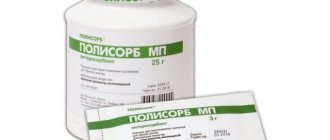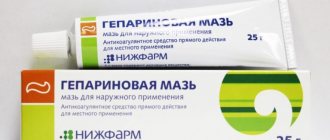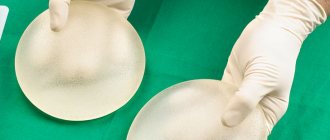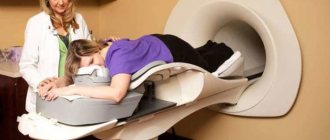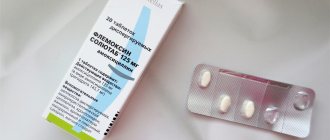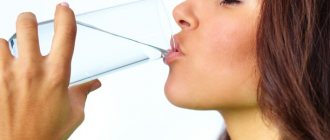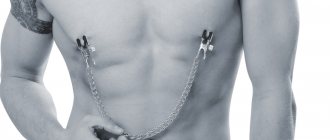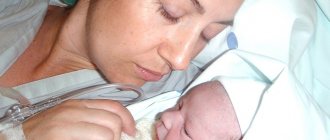Many women experience hemorrhoids even during pregnancy, and after the birth of a child, the symptoms of an unpleasant disease only become more pronounced. Itching, burning, pain during bowel movements, swelling of the mucous membrane, etc. These symptoms not only worsen the health condition, but also make it difficult to concentrate on caring for the newborn. Proctologists recommend starting treatment for hemorrhoids in the first stages of development. To successfully combat the disease, experts recommend effective rectal suppositories “Relief”. This medication can also be used while breastfeeding, but you should consult your doctor before doing so.
Benefits of rectal suppositories
Why are rectal suppositories considered one of the best medicines for the treatment of hemorrhoids? Due to the close contact directly with the hemorrhoidal node, the main active ingredients contained in the drug quickly act on the affected area as soon as the candle melts.
Suppositories for hemorrhoids are usually an affordable remedy. They are sold in all pharmacies at fairly low prices. Using rectal suppositories is a simple process that does not require special skills.
Relief suppositories and ointment during breastfeeding: can nursing mothers use it, reviews
Hemorrhoids are a disease that is very often diagnosed in breastfeeding women in the postpartum period.
To prevent such a painful illness from overshadowing a mother’s happiness, the disease should not be allowed to progress to a severe form and treatment should be started on time.
During lactation, a nursing mother cannot use the full range of medications intended for the treatment of hemorrhoids. Relief is a drug whose use by doctors is considered acceptable during lactation.
The indication for use of the drug Relief is hemorrhoids. Ointment and suppositories, as part of a comprehensive treatment for hemorrhoids, relieve painful symptoms and promote the healing of cracks and erosions in the anus.
Relief is also recommended for inflammatory processes in the rectal mucosa. Other indications for use of Relief:
- anal itching;
- eczema;
- perianal dermatitis (inflammation in the anus and surrounding skin).
After childbirth, many women have to deal with hemorrhoids. The prevalence of this disease among women who have given birth is due to the fact that during natural labor (in particular, during the period of pushing), overstrain of the muscles of the perineum, sphincter and hemorrhoidal veins occurs.
At risk for hemorrhoids are women who have gained excessive weight during pregnancy and exercised little, as well as expectant mothers who have experienced constipation.
The risk of hemorrhoids in a woman can be reduced by eating foods high in fiber and not gaining extra pounds, as well as by leading an active lifestyle.
Reviews from nursing women
Individual tolerance to drug components and the body’s sensitivity to their action determine the degree of therapeutic effect, and therefore the positive or negative nature of reviews about the drug.
The drug is not a cheap medicine: for example, the price of ointment for hemorrhoids varies from 200 to 450 rubles, depending on the type of product in the Relief line. However, women speak positively about the possibility of using Relief during breastfeeding:
The composition of classic Relief candles is relatively safe for both mother and baby:
Nursing mothers note the effectiveness of the drug:
A nursing mother who cares about her health and the well-being of her baby can use Relief to treat hemorrhoids.
The active components of the drug are supplemented with natural trace elements that benefit the female body, weakened after childbirth.
However, do not forget that Relief is a medicine, and therefore its use must be agreed with the attending physician.
- Anastasia Isakova
Source: //orebenke.info/posle-rodov/lechenie-pri-grudnom-vskarmlivanii/svechi-relif-pri-grudnom-vskarmlivanii.html
What are hemorrhoids?
To begin with, it must be said that hemorrhoids do not appear in all pregnant women or women who have given birth. It is important to know that the development of the disease is not affected by varicose veins. Just like young mothers with varicose veins do not always suffer from prolapse of hemorrhoids. In principle, the cause of this disease is often constipation of a long-term nature. Fecal matter inside the body creates pressure on the veins, causing bleeding. If this process occurs regularly, then the cones (nodes) become larger and larger.
Hemorrhoids can be internal or external. Most often, the disease manifests itself in the form of blood clots during bowel movements, pain during bowel movements and constipation. Women can detect prolapsed hemorrhoids on their own.
Causes of hemorrhoids in pregnant women
During the period of bearing a child, women's hormonal levels change, plus blood flow in the pelvic organs is disrupted. These factors are quite enough for the formation of lumps or inflammation of hemorrhoids if they appeared before pregnancy. In order not to use Relief while breastfeeding, you must first think about minimizing the consequences of pregnancy hemorrhoids.
So, among the main causes of hemorrhoids in pregnant women, we highlight:
- Hormonal imbalance.
- Problems with blood flow in the pelvic area.
- Increased physical activity.
- Non-compliance with diet.
Heredity can be added to this, but it is not directly related to pregnancy.
When blood flow is disrupted, the walls of blood vessels become thinner and weaker, which, against the backdrop of increased stress, can lead to varicose veins in the anus. If a diet is not followed at the same time, this leads to constipation and gives hemorrhoids another trump card. Of course, Relief will help during breastfeeding and pregnancy, but you should not be careless about your health if you want to give birth to a healthy child and completely surrender to him during feeding.
Complications of hemorrhoids
Delayed control of the disease or complete lack of drug treatment can quickly lead to complications:
- Thrombosis. Occurs with frequent swelling of the rectal mucosa. During constipation, a spasm of the sphincter is observed, which presses with great force on the hemorrhoids, which causes bleeding, and then thrombosis occurs. If there is no proper treatment, thrombosis can develop into soft tissue necrosis.
- Purulent inflammations that appear after a long inflammatory process.
Indications for use
According to the instructions, Relief suppositories are not contraindicated during breastfeeding. They act as an anti-inflammatory, analgesic, and hemostatic agent. The drug perfectly improves local immunity, softens knots and promotes rapid healing of cracks.
Suppositories are used not only for the treatment of hemorrhoids, but also for their prevention. "Relief" is not prohibited for use during breastfeeding, however, when prescribing the drug, the individual characteristics of the woman should always be taken into account.
"Relief" during breastfeeding (lactation): ointment, suppositories - Advance, Ultra, Pro
06.09.2018 | 10850
Relief is a remedy used to eliminate hemorrhoids, anal fissures and tissue diseases of the perianal area. This drug is prescribed to many women, but during breastfeeding (BF), the dosage and course of therapy may differ from the usual. In order not to worry about possible harm to the baby, you should understand what this remedy is.
Description of the drug
The Relief line of drugs copes well with a delicate problem and does not require specific skills to use. The components of the drug come into close contact with the affected tissues and have a healing effect on them as quickly as possible. The consistency and dose of the medication is determined based on the form of the pathology and the characteristics of the patient’s body.
Relief
The product is available in white or yellow suppositories with a slight seafood odor. Phenylephrine hydrochloride and shark liver oil have regenerating and antiseptic properties. The package of the drug contains 2 blisters with 6 suppositories of pointed and oblong shape in each.
Release form: white ointment or anal suppositories. The medication is based on benzocaine and shark liver oil, which dull the pain at the site of the lesion and reduce discomfort.
Relief Ultra
This drug has drying, healing and antiseptic effects. It comes in the form of yellow anal suppositories with a distinct fishy odor. The active ingredients - hydrocortisone and sulfate monohydrate - cope well with many injuries to the intestines and anal tissues.
Relief Pro
The medication is available in a white cream for insertion into the anus and rectal suppositories. The first are packaged in an aluminum tube, the second - in 2 blisters of 5 pieces.
Relief ointment can only be found in the Advance line. It gently affects damaged tissue areas, eliminating pain.
The active ingredients - fluocortolone and lidocaine - have an antiseptic and anesthetic effect.
How it works and what it treats: areas of application
Before using any medications during lactation, you should first consult with a specialist. This is due to the fact that each individual drug has a different focus and principles of action.
Relief Advance
Relief Advance suppositories and ointment consist of six main components:
- Shark liver oil, which eliminates inflammation.
- Phenylephrine, which constricts blood vessels and normalizes blood flow.
- Cocoa butter and petroleum jelly, which facilitate the administration of suppositories and reduce inflammation and itching.
- Benzocaine, which has an anesthetic effect.
- Zinc sulfate, healing the mucous membranes of the damaged area.
- Hydrocortisone acetate, which relieves itching and reduces swelling.
Relief Advance treats hemorrhoids and fissures, eliminates discomfort at the site of inflammation.
Instructions for use for nursing mothers
Relief ointments and suppositories should be used during breastfeeding, adhering to certain rules. It is important that the drug is prescribed by a medical professional, and you should also remember that:
- Suppositories should be stored in a dark and cool place.
- The suppositories should be inserted while lying on your side with the rounded end up.
- After the drug penetrates the anus, you should lie down for at least 15 minutes.
- Suppositories are best used after bowel movements, in the morning and evening.
- No more than 4 suppositories are allowed to be used daily.
- Before using the medication, you need to wash your hands and the treated area.
- Ointments and creams should be applied in an even layer to the perianal area three times a day.
- To administer creams and ointments internally, use a special applicator located in the package.
- Some components of the product can cause severe allergies in a child, so after the first use you need to wait some time, monitoring the baby’s reaction.
If the remedy is prescribed to a nursing mother to treat constipation, then administering one suppository twice a day after bowel movements will be sufficient. If the dosage of the drug is exceeded, a woman may experience itching and redness of the perianal area. If the product gets into your eyes, you should immediately rinse them with water and seek qualified medical help.
Contraindications
The local drug enters the bloodstream in a minimal amount, so it is almost absent in mother’s milk. A qualified doctor will select the dosage for the patient that is acceptable during lactation. But there are times when you have to refuse the drug. Relief should not be used during breastfeeding if:
- fungal or viral infection;
- thromboembolic disease;
- decreased level of granulocytes in the blood;
- tuberculosis;
- some pathologies of the endocrine system;
- renal water loss;
- arterial hypertension;
- neoplasms of various types;
- disturbances in the functioning of the hypothalamic-pituitary system.
In any other situations, the product is used with caution.
Types of drug
The drug is available in three varieties: “Relief”, “Relief Advance” and “Relief Ultra”. Only a doctor can tell you which drug to choose after an examination. All varieties of “Relief” contain the main component – shark liver oil. Otherwise, these suppositories differ in additional components. Relief Advance suppositories, which contain benzocaine, have proven themselves to be effective during breastfeeding. This anesthetic helps to quickly cope with acute pain. But Relief Ultra rectal suppositories should be used extremely carefully when breastfeeding. If you still need to undergo treatment with this drug, you should temporarily stop breastfeeding your baby. "Relief Ultra" is more often used to stop bleeding. This property is achieved due to hormonal components and zinc, which are part of the medicine.
Hemorrhoids after childbirth: is it possible to use Relief suppositories while breastfeeding?
Pregnancy itself is a factor predisposing to stagnation in the veins of the pelvis and rectum due to increased intra-abdominal pressure due to an enlarged uterus. It also leads to displacement of the gastrointestinal tract organs.
Additionally, there is a change in hormonal levels. As a result, half of pregnant women have problems with bowel movements.
Defecation occurs with tension and straining, which leads to dilation of hemorrhoidal veins and the formation of nodes.
"Relief" candles for breastfeeding
The first weeks of the postpartum period are accompanied by increased stress for the woman - rehabilitation after childbirth is underway, sutures are healing, lactation is established and the newborn requires special attention. Relief candles can help a woman restore her health.
Relief preparations
Compound
The modern pharmacy market offers 4 types of drugs:
- "Relief"
- "Relief Ultra"
- "Relief Advance"
- "Relief Pro".
Candles
Previously, they were united by the fact that they were all made on the basis of shark liver oil. The drug was produced in the USA. Currently, the producing countries are Italy, Germany, and Greece. Owner of the registration certificate. Shark liver oil is used only in the manufacture of Relief Ultra candles.
"Relief Ultra"
The main active ingredient of the drug is phenylephrine hydrochloride. It is customary to use cocoa butter, corn starch, methyl and propyl parahydroxybenzoate as auxiliary ingredients. Each suppository contains phenylephrine in an amount of 5 mg.
Relief Ultra candles use completely different components. The main ingredients are hydrocortisone acetate, zinc sulfate and shark liver oil. One suppository consists of 10 mg of hydrocortisone, 11 mg of zinc sulfate and 60 mg of shark liver oil.
Advance preparations offer benzocaine as the main active ingredient at the rate of 206 mg per 1 suppository; auxiliary suppository-forming substances are also used. "Relief Pro" in 1 suppository contains 1 mg of fluocortolone pivalate and 40 mg of lidocaine hydrochloride.
Release form
In addition to the form in the form of rectal suppositories, packaged in 12 pieces in cardboard boxes, there are ointments of the same name and composition in plastic tubes equipped with a special applicator.
Relief ointment is yellow in color and contains 2.5 mg of phenylephrine hydrochloride per 1 g. There are also excipients, the main of which is Vezelin, in smaller doses - minerals, glycerol, white beeswax.
Ointment "Relief Advance"
Relief Advance ointment consists of 200 mg of benzocaine per 1 g of ointment with the addition of excipients. Plastic tubes of 28.4 g together with the applicator are packed in cardboard boxes. The product is available only in candles.
"Relief Pro"
"Relief Pro" is offered by the pharmacy chain in the form of a white rectal cream. The cream is placed in aluminum tubes of 10 g, 1 g each. The main substances - fluocortanol and lidocaine - are in quantities of 1 mg and 20 mg, respectively. Dosed using an applicator.
Pharmacodynamics and pharmacokinetics
Important! Since the drug cannot be used in pregnant women and during lactation due to possible negative effects on the child, we will focus on other types of the Relief line of drugs. Their mechanism of action is determined by the main ingredients in the composition.
Phenylephrine hydrochloride, according to its pharmacological action, is an alpha-adrenergic agonist, therefore it reduces the amount of exudate, swelling and itching in the anal area. This effect is due to the vasoconstrictor effect.
This, in turn, is achieved through the action of phenylephrine on postsynaptic alpha-adrenergic receptors. When administered rectally, it is subject to systemic absorption. The action begins within an hour.
Metabolism occurs in the liver and gastrointestinal tract, after which the metabolites are excreted by the kidneys.
Benzocaine is a topical anesthetic. By changing the ionic permeability of the cell membrane, they block the generation and transmission of a nerve impulse. Absorption upon contact with the rectal mucosa is minimal, and the analgesic effect begins almost immediately. The enzyme cholinesterase hydrolyzes it to para-aminobenzoic acid metabolites, which are excreted in the urine.
Fluocortolone has an anti-inflammatory, antipruritic and antiallergic effect, reduces inflammatory exudate and the production of lymphokines. In the rectum it begins to act immediately. Metabolized by esterases, the half-life of metabolites is 4 hours, excreted by the kidneys.
Lidocaine has a local anesthetic effect similar to benzocaine, which is carried out according to a similar mechanism of action. Passes through the placenta, up to 40% penetrates into breast milk when administered intravenously.
90-95% of the drug is metabolized in the liver due to microsomal enzymes. Metabolites are excreted in the bile and kidneys, 10% are excreted unchanged. In chronic renal failure, cumulation is possible.
Indications for use
The drug is recommended for use in the following diseases:
- haemorrhoids,
- anal fissure,
- rectal erosion,
- perianal itching,
- proctitis,
- chronic constipation,
- anal pain after operations, injuries and diagnostic procedures.
If a nursing mother has predominant pain in the rectal area, then it is preferable to use suppositories with a local anesthetic. For external localization of hemorrhoids, you should choose Relief Advance ointment.
If the mother notices scarlet-colored bloody discharge during or after defecation, the drug of choice is Relief suppositories or Relief ointment for external localization.
Important! The drug "Relief Pro" is indicated for inflammation and itching in the anus.
A proctologist will give competent recommendations on choosing suppositories for a woman who is breastfeeding.
Contraindications for breastfeeding
Since most of the ingredients included in rectal suppositories are able to penetrate biological barriers and enter the placental bloodstream and breast milk, the child can receive these drugs into his body. Specific facts about the teratogenic effect of the drug have not been obtained.
General contraindications for the use of rectal suppositories apply to nursing mothers:
- high blood pressure, severe course,
- severe hyperthyroidism,
- diabetes mellitus of any type in severe cases,
- severe diseases of the cardiovascular system,
- decompensated chronic liver and kidney diseases,
- acute pancreatitis,
- tuberculosis,
- granulocytopenia,
- thromboembolism,
- infection of the perianal area.
In fairness, it is worth noting that most of these diagnoses exclude the possibility of bearing a child and breastfeeding.
"Relief" Ultra suppositories are contraindicated for pregnant and lactating women due to the presence of hydrocortisone in it, which is a hormone of the adrenal cortex, because when applied topically, an effect similar to the systemic use of hydrocortisone is observed.
Side effects
Side effects with topical use of Relief series suppositories are observed infrequently. A nursing woman may:
- allergic manifestations to the components of suppositories, including auxiliary ones,
- swelling of the nodes, burning and rashes in the perianal area,
- increased blood pressure,
- decrease in heart rate,
- respiratory distress, nasolabial cyanosis,
- gastrointestinal disorders,
- dizziness and headaches.
Allergic reactions can occur not only in the mother who decided to take the drug, but also in the baby, whose diet consists of breast milk containing the main and auxiliary ingredients in small quantities. For example, there are known cases of a child being allergic to cocoa butter.
Method and dosage
Important! The method and dosage of using the product during breastfeeding requires careful monitoring. The course of treatment should not exceed that prescribed by the doctor. It is usually limited to one week.
The instructions require using no more than 4 candles during the day. The first suppository is administered in the morning about half an hour after waking up. The other two can be administered after bowel movements. The last fourth candle is prescribed at night before bedtime.
Each suppository is administered after thoroughly washing the anal area. With cleanly washed hands, remove the candle from the refrigerator and remove it from the packaging.
It is recommended to keep it at room temperature for several minutes, and then insert it into the rectum while lying on your side. After inserting the suppository, you need to remain in a horizontal position for 15-20 minutes.
To facilitate insertion of the suppository, you can lubricate the anus area with Vaseline. An important note - the intestines must be emptied before inserting the suppository.
Overdose
If the dose is exceeded by more than 4 suppositories per day, symptoms of overdose may develop.
Relief Advance suppositories give the following symptoms in case of overdose:
- drowsiness,
- excitation,
- anxiety,
- convulsions,
- coma,
- respiratory failure,
- acrocyanosis.
The last symptom is relieved by the administration of methylene blue; in other cases, symptomatic therapy is carried out.
There were no cases of overdose when using the drug.
Relief Pro suppositories, when accidentally ingested (swallowing more than 1 suppository), causes severe disorders of the cardiovascular and central nervous systems, including cardiac and respiratory arrest.
Interaction
Relief Advance should be used with caution in patients receiving treatment with drugs:
- MAO inhibitors,
- antidepressants,
- antihypertensive drugs.
Antiarrhythmic drugs with Relief Pro suppositories can cause atrioventricular block or ventricular fibrillation. The medicine reduces the effect of antihypertensive drugs, and antidepressants and MAO inhibitors can lead to a hypertensive crisis.
When treating hemorrhoids in women during lactation, the doctor is guided by a comparison of the benefits of the treatment and the risk of adverse consequences for the child. The drug cannot be considered absolutely safe. An alternative to them can be Natalsid and Posterisan Forte suppositories, which have no contraindications during pregnancy and breastfeeding.
Loading…
Source: //MedBoli.ru/gemorroj/preparaty/gemorroj-posle-rodov-vozmozhno-li-ispolzovanie-svechej-relif-pri-grudnom-vskarmlivanii
Compound
The drug should be stored in a cool place away from sunlight. These suppositories stand out among the entire range of modern rectal suppositories and ointments against hemorrhoids. “Relief” candles have a yellowish tint and are made in the shape of a torpedo with a barely noticeable smell of fish. The composition of the drug includes the following additional components:
- shark liver oil;
- cocoa butter;
- starch;
- methyl and propyl ester of para-hydroxybenzoic acid.
Mode of application
How to use Relief candles correctly? When breastfeeding, hemorrhoids are one of the serious problems that cause great discomfort to a woman. Rectal suppositories help cope with the disease. It is important to know how to properly store and use the medicine for hemorrhoids.
Each package of the drug is accompanied by detailed instructions, which indicate the composition of the drug, indications and contraindications for its use and other useful information. Suppositories should be stored in a dark, cool place. A refrigerator is perfect for these purposes. Before use, remove the candle from the plastic packaging and wait a bit for it to warm up to room temperature. Suppositories are inserted into the anus while lying on your side. The drug is administered with the rounded end facing forward. After this, it is recommended to lie down for about 15-30 minutes.
It is best to administer medicinal suppositories in the morning, at night and after each bowel movement. The instructions for the drug say that the maximum dose is six suppositories per day, but when breastfeeding it is not recommended to use more than four suppositories per day. If a woman does not comply with the dosage prescribed by the doctor or is individually intolerant to the components of the drug, side effects may occur.
Relief rectal suppositories are very effective during breastfeeding and do not cause side effects. They are prescribed not only for the treatment of hemorrhoids, but also for the prevention of constipation. To do this, it is enough to use one suppository per day, which is administered immediately after bowel movement in the morning or evening.

Before inserting a suppository or applying an ointment, a woman should wash her hands to prevent infection. Next, you must adhere to the following recommendations:
- Be sure to wash your hands with disinfectants;
- open the plastic capsule and take out the suppository;
- Carefully insert the suppositories into the rectum so as not to injure the anal passage.
Relief during breastfeeding – Advance and Ultra
Excellent results in the treatment of hemorrhoids are shown by the drug Relief, which is available in the form of ointments and suppositories.
The product is suitable for use during pregnancy and breastfeeding; it will effectively eliminate the symptoms of varicose veins and help quickly get rid of hemorrhoidal cones.
The article will tell you about the drugs Relief Advance and Ultra, the material contains a breakdown of the composition of the products, the active components of the drugs and the features of their use. There is also information for women about possible side effects and contraindications for taking Relief.
Any illness after the birth of a child can darken the joy of motherhood, because it will prevent you from fully devoting yourself to caring for the baby. Hemorrhoids stand apart, as they are accompanied by unpleasant symptoms that completely knock the mother out of her usual rhythm of life.
Today we will talk about the causes of hemorrhoidal cones in pregnant women, and also open the veil of mystery over the features of treating the disease during breastfeeding.
For you, an overview of therapy drugs, including tips on how to take Relief during lactation and what side effects and contraindications the drug has.
This will help you cope with the disease faster and nothing after that will interfere with the happiness of motherhood.
Causes of hemorrhoids in pregnant women
During the period of bearing a child, women's hormonal levels change, plus blood flow in the pelvic organs is disrupted.
These factors are quite enough for the formation of lumps or inflammation of hemorrhoids if they appeared before pregnancy.
In order not to use Relief later while breastfeeding, you must first think about minimizing the consequences of pregnancy in order to avoid varicose veins in the anorectal area.
So, among the main causes of hemorrhoids in pregnant women, we highlight:
- Hormonal imbalance.
- Problems with blood flow in the pelvic area.
- Increased physical activity.
- Non-compliance with diet.
Heredity can be added to this, but it is not directly related to pregnancy.
When blood flow is disrupted, the walls of blood vessels become thinner and weaker, which, against the backdrop of increased stress, can lead to varicose veins in the anus.
If a diet is not followed at the same time, this leads to constipation and gives hemorrhoids another trump card.
Of course, Relief will help during breastfeeding and pregnancy, but you should not be careless about your health if you want to give birth to a healthy child and completely surrender to him during feeding.
How to choose a drug during lactation
It is necessary to carefully select a drug for the treatment of hemorrhoids not only during pregnancy, but also during lactation. At the first stage, medications can have a negative effect on the development of the fetus; in the second, the active components can be transferred to the baby through milk and cause allergies or create other problems.
To avoid this, you need to choose a remedy that causes minimal damage to the body.
From the review you will learn why Relief suppositories are good for breastfeeding, and you will also understand why many mothers prefer Relief ointment for breastfeeding.
The review includes several drugs, including proven products - Relief Advance and Relief Ultra, as well as a description of the advantages and disadvantages of different forms of the drug (suppositories and ointment gels).
Relief Advance during lactation
When treating hemorrhoids, many mothers prefer Relief Advance ointment while breastfeeding, as it is an effective drug that has few side effects and is easy to use. The ointment has a white or yellowish tint and belongs to the group of local analgesics that are intended for external use.
Properties and indications of Advance ointment
Relief Advens ointment for breastfeeding has a pronounced analgesic effect, is not addictive during therapy and does not have a resorptive effect. The drug quickly relieves pain and relieves the patient from unpleasant symptoms - itching, heaviness in the anorectal area and burning.
The drug can be used for therapy at different stages of hemorrhoids; it is also in demand during the rehabilitation period after surgery. In addition to hemorrhoids, Relief Advance ointment helps in the treatment of anal fissures and is used as an analgesic during diagnostic procedures.
Composition and action of Advance
The Relief Advance ointment used during breastfeeding contains one active substance - benzocaine at a dosage of 200 mg per 1 gram of ointment and auxiliary components. The use of Relief during lactation is allowed with restrictions, which will be discussed in the block devoted to dosage.
Among the auxiliary components we note:
- Sorbitan stearite.
- Propylene glycol.
- Mineral oil (light).
- Vaseline is white.
They improve the absorption of the drug into the skin and have no side effects. An alternative to ointment is Relief Advance suppositories for breastfeeding, which have the same active substance, but different auxiliary components.
The main purpose of using Advance brand ointments and suppositories is to reduce pain; the small anti-inflammatory effect does not allow the drug to be classified as complex.
Advance use and contraindications
Relief Advance ointment is applied to the site of varicose veins 1-3 times a day, and it is important not to damage the hemorrhoids when rubbing. As the effect is achieved, the dosage is reduced to 1 application in the morning or evening. Relief ointment will not cause harm during breastfeeding if the daily dosage is not exceeded and the course of treatment does not exceed 10 days.
Candles are inserted into the anus up to 4 times a day for severe pain and up to 2 times for moderate pain. The dosage is also reduced as symptoms decrease. The duration of the course is up to one and a half weeks.
If you are hypersensitive to benzocaine, as well as when taking other amide-type anesthetics and with thromboembolism and granulocytopenia, the ointment cannot be used, as this will lead to serious side effects. There are no other contraindications for the use of Relief ointment and suppositories during breastfeeding.
The price of Advance suppositories and ointment is from 380 rubles.
Relief Ultra during lactation
If a nursing mother does not have severe pain with hemorrhoids, but is bothered by other unpleasant symptoms and wants to get rid of the disease faster, then use Relief Ultra suppositories while breastfeeding. They effectively relieve symptoms and allow you to fully enjoy motherhood.
This is a complex drug that has:
- Local anti-inflammatory.
- Regenerating.
- Glucocortisoid action.
Suppositories are yellowish in color and torpedo-shaped, which makes them easier to insert into the anus, and the minimum side effects allow the drug to be used during pregnancy and lactation (the duration of therapy and dosage must be observed).
Composition and pharmacodynamics
The composition of Relief suppositories for hemorrhoids during breastfeeding includes several active substances - these are:
- Hydrocortisone acetate.
- Zinc sulfate monohydrate.
Hydrocortisone is a steroid hormone obtained from the adrenal cortex. It promotes vasoconstriction, eliminates itching and burning, and also has an anti-inflammatory effect. In addition, active substance No. 1 inhibits the growth of inflammatory mediators and has a desensitizing effect.
Zinc sulfate also plays a role, which accelerates wound healing and helps get rid of erosions. The component is indispensable for inflammation of hemorrhoids, and will also help you quickly return to normal life during the rehabilitation period after surgery. During lactation, zinc sulfate will not harm the baby unless the permissible dosage is exceeded.
The active substance is quickly absorbed into the dermis, reaching its maximum concentration after 4-6 hours and maintaining a therapeutic dose for up to 8 hours.
If you are interested in the question of whether Relief suppositories can be used while breastfeeding, then we will answer positively with some reservations:
- Use the drug after consulting your doctor.
- Consider contraindications not related to lactation.
- Do not exceed the duration of treatment and dosage.
If you comply with these requirements, then Relief suppositories during lactation will not harm the child and will help to quickly relieve the symptoms of hemorrhoids and get rid of the disease.
Application and contraindications
To fully answer the question of whether Relief can be used during breastfeeding, you need to look at the specifics of using suppositories and contraindications to the drug.
Suppositories are administered rectally after hygiene procedures 3-4 times a day. As the anti-inflammatory effect is achieved and the symptoms of hemorrhoids are relieved, the dosage is reduced to 1-2 suppositories. The duration of therapy is determined by the doctor, as a rule, it is 10-15 days, after which a pause should be taken.
Relief candles should not be used if:
- Sensitivity to the active substances of the drug.
- Hypernatremia.
- Neoplasms in the anorectal area.
- Tuberculosis.
- Extreme stage of diabetes mellitus.
- The presence of viral, bacterial or fungal infections.
Before using suppositories during breastfeeding, consultation with a doctor is required; during therapy, it is also necessary to undergo regular tests and monitor your well-being.
Side effects when taking Relief are allergic reactions that disappear after stopping taking the drug.
Overdose Ultra
In case of an overdose of the drug, regardless of the release form, the following are possible:
- Ulcers and erosions of the gastrointestinal tract.
- Hyperglycemia.
- Weakening of the immune system.
- The appearance of Itsenko-Cushing syndrome.
In this case, symptomatic therapy is carried out, including detoxification procedures. The cost of Relief Ultra in Moscow starts from 550 rubles, the drug is available without a prescription, has a shelf life of 2 years, and reviews about Relief candles are only positive.
Analogues of Relief during lactation
In addition to suppositories and Relief ointment, you can take the following medications during pregnancy and lactation:
- Procto-Glivenol.
- Troxerutin.
- Proctosan.
- Trombless.
Before using these drugs, you should consult your doctor, as some drugs relieve pain, others are effective for bleeding, and others are good for stopping the inflammatory process. It is optimal to look for drugs with a complex effect, since they simultaneously relieve the severity of symptoms and stop the development of the disease.
Tips for nursing mothers
During the period of breastfeeding and treatment of hemorrhoids with Relief drugs, it is important to follow a diet and avoid serious physical activity. The latter can increase blood flow in the anorectal area, which will lead to an exacerbation of the disease. It is better for mothers to prefer walks in the fresh air, but leave the heavy lifting to a man.
Diet is also important, because with hemorrhoids it is necessary to minimize the likelihood of constipation, which also opens the way for inflammation of hemorrhoidal cones with internal and external hemorrhoids.
You need to consume more:
- Fruits and vegetables.
- Fiber.
- Light porridge.
- Still water.
Following a diet, lack of physical activity and taking Relief in accordance with the doctor’s recommendations is the most optimal way for effective treatment of hemorrhoids. By following these rules, a nursing mother will quickly get rid of the disease and will be able to fully devote herself to motherhood.
We hope that we have fully answered the question of whether Relief can be used while breastfeeding and our answer will help you choose the optimal drug for yourself, taking into account the stage of hemorrhoids and the physiological characteristics of the woman.
P.S. If you don’t want to go under the surgeon’s knife while feeding your baby, then don’t skip taking medications and follow their dosage. Otherwise, motherhood will not be overshadowed by the operation, because even after it the woman will need a long rehabilitation period to recover.
for the treatment of hemorrhoids during hepatitis B
The video will help in the treatment of hemorrhoids during lactation and give advice on how to choose the right drug for therapy.
Source: //gemorroy.guru/preparations/creams/relif-pri-grudnom-vskarmlivanii-advans-i-ultra
Is it safe to take the drug during lactation?
It is important to pay attention to the fact that suppositories differ in the main active ingredients; for this reason, Relief suppositories can be taken during breastfeeding, and doctors advise taking Relief Advance with caution during lactation. Relief Ultra suppositories should not be used during lactation. If, nevertheless, the drug is prescribed by the attending physician, then during treatment, feeding the child with breast milk should be suspended. Only a qualified doctor will tell you how to use Relief while breastfeeding after examining the patient and analyzing the results of laboratory tests.
Composition and action
The Relief Advance ointment used for lactation contains one active substance - benzocaine at a dosage of 200 mg per 1 gram of ointment and auxiliary components. The use of Relief during lactation is allowed with restrictions, which will be discussed in the block on dosage.
Among the auxiliary components we note:
- Sorbitan stearite.
- Propylene glycol.
- Mineral oil (light).
- Vaseline is white.
They improve the absorption of the drug into the skin and have no side effects. An alternative to ointment is Advance suppositories for breastfeeding, which have the same active substance, but different auxiliary components.
The main purpose of using Advance brand ointments and suppositories is to reduce pain; the small anti-inflammatory effect does not allow the drug to be classified as complex.
Precautions and side effects
After giving birth, nursing mothers need to carefully approach the problem of treating such an unpleasant problem as hemorrhoids. It is worth paying attention that self-medication is unacceptable during lactation. Therefore, you should use Relief suppositories during breastfeeding only under the strict supervision of a doctor. An incorrectly selected dosage of the drug can cause irreparable damage to the newborn. Since the components of the suppositories can pass into breast milk and then be passed on to the baby, you should prevent high concentrations of them in the body, following the instructions of a specialist.
Shark oil and cocoa are the strongest allergens. Therefore, during breastfeeding, you should closely monitor the baby’s health, because phenylephrine hydrochloride, included in the suppositories, instantly increases the newborn’s blood pressure.
Relief suppositories should be taken with caution in case of chronic heart failure. For children under 12 years of age, suppositories are used only after consultation with the attending physician. It is important to avoid getting the medicine in your eyes. The drug does not affect the ability to drive a car or operate precision machinery.
Composition and pharmacodynamics
Relief Ultra suppositories contain several active substances - these are:
- Hydrocortisone acetate.
- Zinc sulfate monohydrate.
Hydrocortisone is a steroid hormone obtained from the adrenal cortex. It promotes vasoconstriction, eliminates itching and burning, and also has an anti-inflammatory effect. In addition, active substance No. 1 inhibits the growth of inflammatory mediators and has a desensitizing effect.
Zinc sulfate also plays a role, which accelerates wound healing and helps get rid of erosions. The component is indispensable for inflammation of hemorrhoids, and will also help you quickly return to normal life during the rehabilitation period after surgery. During lactation, zinc sulfate will not harm the baby unless the permissible dosage is exceeded.
The active substance is quickly absorbed into the dermis, reaching its maximum concentration after 4-6 hours and maintaining a therapeutic dose for up to 8 hours.
If you are interested in the question of whether it is possible to use Ultra series suppositories when breastfeeding a child, then we will answer positively with some reservations:
- Use the drug after consulting your doctor.
- Consider contraindications not related to lactation.
- Do not exceed the duration of treatment and dosage.
If you follow these requirements, the suppositories will not harm the child and will help to quickly relieve the symptoms of hemorrhoids and get rid of the disease.
Contraindications
Doctors do not recommend taking Relief and Relief Advance suppositories if hypersensitivity to the components of the drug, granulocytopenia, or thromboembolic disease is detected. Relief Ultra suppositories are contraindicated for use if a fungal, viral or bacterial infection is detected in the area of administration of the drug. Also, you should not use Relief Ultra under the following conditions:
- tuberculosis;
- severe forms of diabetes mellitus;
- hypernatremia;
- neoplasms of the anorectal zone;
- Itsenko-Cushing syndrome.
Reviews and analogues of the drug
Relief ointments and suppositories can be used during breastfeeding if there are no contraindications and the attending physician has approved the course of therapy. According to reviews, an excellent alternative is sea buckthorn oil for hemorrhoids, which is also available in the form of rectal suppositories.
Most patients respond positively to Relief. The drug helps heal fissures in the anus and relieve pain. Today, there is a wide selection of remedies that are also recommended for the treatment of hemorrhoids and constipation. Judging by the reviews, not all women use Relief suppositories when breastfeeding. Some people replace them with folk remedies such as propolis, lard and birch tar. In this situation, you should exercise caution, because natural substances can cause an allergic reaction.
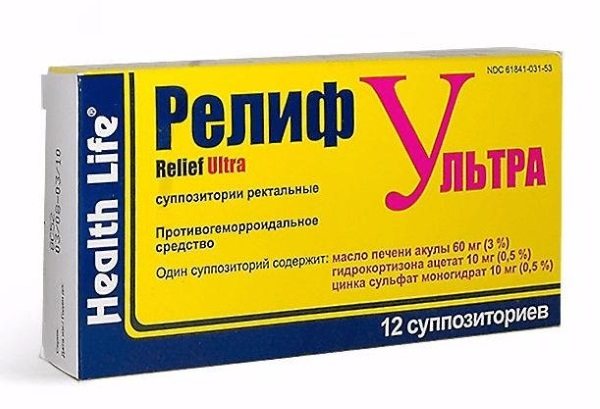
If you experience severe pain and constant bleeding, you should immediately contact a proctologist, who will prescribe effective treatment. Surgeries for hemorrhoids are practiced in rare cases, since the disease can be cured using more gentle means.
Analogs
Good analogues are:
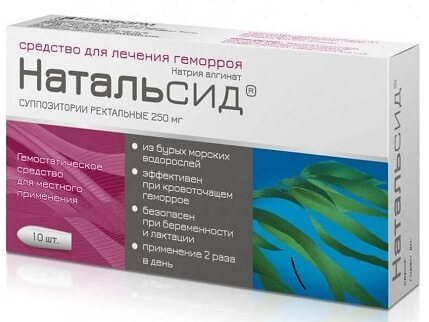
- Betiol;
- Olestesin;
- Gepasolone;
- Hepatrombin G;
- Anuzol;
- Natalsid.
These ointments and suppositories can be used only after consultation with a specialist, since only he can tell which drug is best for nursing mothers.
At the moment, the following popular and widespread analogues are distinguished:
- Relief ultra. Available only in the form of candles. It contains a steroid hormone that is produced by the adrenal cortex. It is classified as a combined remedy against hemorrhoids. Has a wound healing effect. It has anti-inflammatory, vasoconstrictor and antipruritic effects. When breastfeeding, it can be used only as prescribed by a doctor.
- Relief Advance. Available in the form of ointments and suppositories. It contains the active substance – benzocaine. It has a high wound-healing effect and anti-inflammatory effect. In addition, it is considered an excellent local anesthetic and immunomodulator. When breastfeeding, it is prescribed by a doctor after assessing all the risks.
- For hemorrhoids, Natalsid suppositories can relieve symptoms and cure the disease. It has a reparative, hemostatic, anti-inflammatory, hemostatic effect. In addition, it promotes rapid tissue regeneration. Natalsid is prescribed for the presence of anal fissures and chronic hemorrhoids. Natalsid suppositories are used after natural or forced bowel movement. According to the description in the instructions, a single dose of the drug is one suppository for 48 hours. When using Natalsid, there is no need to interrupt lactation - the product is safe for the health of the baby.
What to give preference to and which suppositories to choose from a wide range of antihemorrhoidal drugs in each case is decided by the doctor, based on the individual characteristics of the course of the disease. During lactation, self-medication is especially dangerous - because the health of the baby can also suffer. In addition, today there are no full-fledged studies of pharmacological agents on lactating women - insufficient knowledge explains the prohibitions on the use of the drug for breastfeeding that are often found in instructions. In this way, the manufacturer protects itself from possible adverse consequences. It is best to choose medications carefully, having studied all the pros and cons together with a medical specialist. https://www.youtube.com/embed/rvqCDYrLuJw

